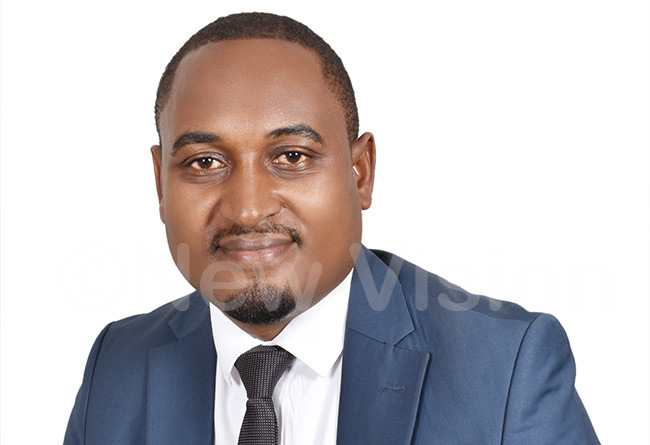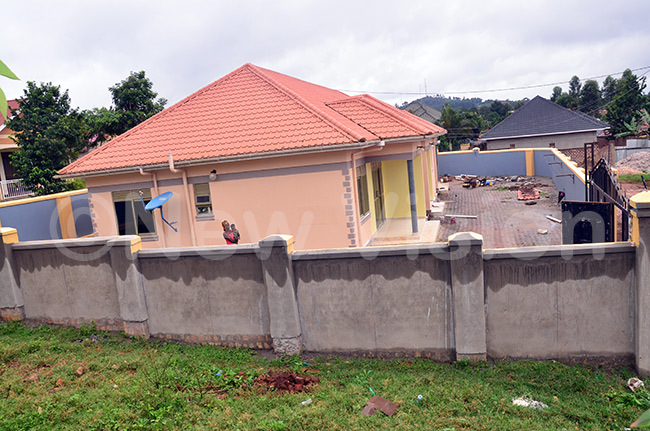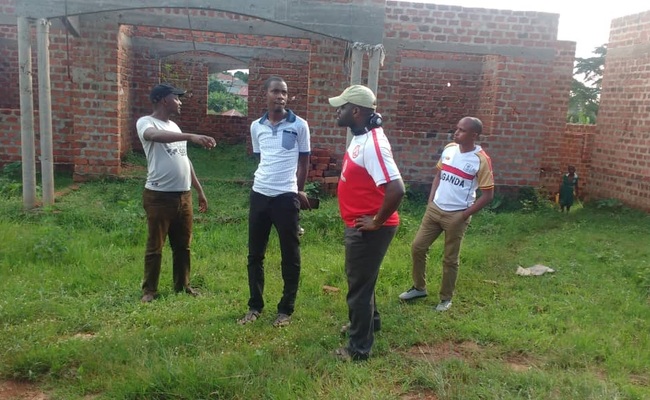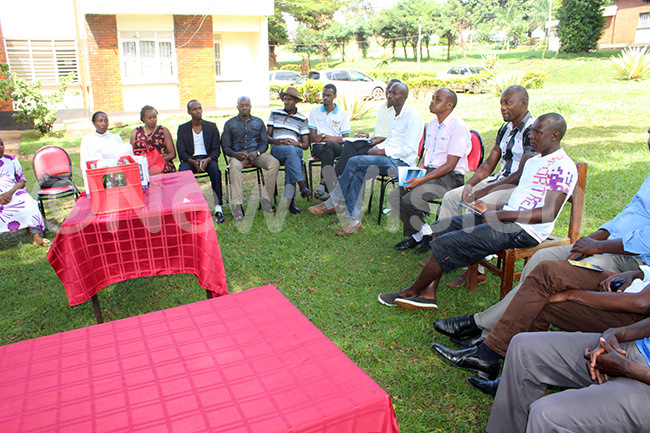Saving as a group towards homeownership
Under the SACCO, they formed a project dubbed ‘decent living’ which has helped them to buy land and construct residential homes and commercial projects.
HOMES & CONSTRUCTION
KAMPALA - Its many people's dream to have a home to their name. As some save for years to buy land before embarking on construction, there are those that take up mortgages while others with a strong financial muscle simply walk to the bank, withdraw or wire millions and pay for a house of their choice. Whatever the means, the end will justify it.
On the same journey, some people have teamed up under investment groups and SACCOs to support each other to own homes.
One such group is Ruhinda Youth Savings Association Limited where over 40 members pool resources towards personal development and homeownership.
 Vanasio Natuhwera Bagateireyo, the group chairman
Vanasio Natuhwera Bagateireyo, the group chairman
Under the SACCO, they formed a project dubbed ‘decent living' which has helped them to buy land and construct residential homes and commercial projects.
They all hail from Ruhinda sub-county, Rujumbura constituency in Rukungiri district but work and live in Kampala plus the neighbouring districts of Wakiso and Mukono, among others.
Vanansio Natuhwera Bagateireyo, the group chairperson says their offices are located in Ntinda on the outskirts of Kampala.
The members come from all walks of life including high and low-end business people, corporates and civil servants, among others.
"The only qualification for subscription to the group is the origin. One must be a youth hailing from Ruhinda and living in Kampala. We don't mind about religion and whether one is a high or low-income earner," he explains.
On why the group is tied to Ruhinda, Natuhwera says that it is a safety measure.
"Many SACCOs come and go due to trust issues. With this one, we know each other so much so that one has nowhere to hide if they default. We even involve our families in the village," he explains.
Meanwhile, come March next year, the group will be celebrating 10 years of fruitful existence.
How they started
In 2010, four youths from Ruhinda would come together to contribute towards Rwoya catholic church project back home. They would meet monthly, collect money and send it home.
However, along the way, they realized they also needed to improve their welfare in Kampala.
"We did not have to necessarily work for the church but also organize ourselves towards personal development," Natuhwera recalls.
Around this time, they formed a pool through which they saved the little they could afford. They also looked at accessing credit at a very low interest rate since all were low income earners.
Two were students at university surviving on handouts while their colleagues were doing odd jobs to make ends meet.
"We also needed money but did not have any collateral security. So we agreed that group savings would benefit us," he reminisces.
They started off by saving sh20, 000 per month which was on the high end given their levels of income. However, they determined to put the money together whenever they met every third Sunday of the month.
 Akankwasa has used the loan facility to build rental units in Mukono
Akankwasa has used the loan facility to build rental units in Mukono
Luck was on their side; on their first meeting, they collected sh80, 000 and it was loaned to a member at an interest of 10%.
"The interest was on a higher side but since we did not have capital, we chose to maintain it," Natuhwera highlights.
They also decided to open the group up from their village mates to include members from the entire constituency.
Two years later, the membership rose to about 20 members and the savings increased to sh30, 000 each per month. In the subsequent years, they would add sh5, 000 or sh10, 000 depending on what members were comfortable with. The population also kept on growing as members would encourage their friends and family to join.
On the contrary, the interest rate dropped from 10% to 8%, 5% up to 1% and today, they charge 8% per annum which Natuhwera says is very friendly.
Currently, 40 members are saving sh70, 000 monthly each. According to Natuhwera, this is within their reach more so, the low income earners whom they don't want to drop off due to finance limitations.
However, they have a plan of increasing to sh100, 000 ceiling if the members agree in the next general meeting.
Meanwhile, the profit realized from the loans has always been ploughed back into the SACCO that has seen it grow in terms of credit facilities estimated at close to sh100million.
Birth of decent living
On realizing that members did not have collateral securities to access loans from banks, Natuhwera and his committee saw an opportunity to shoot two birds with one stone.
The group savings would grow but also, members would access affordable mortgages and funds to buy land or construct homes. The property would intern serve as security.
In addition to the above, some members had failed to pay back the loans they took from Ruhinda SACCO making it hard to recover the money since they had not attached any securities. The bad debts were dragging the group back.
Therefore, the decent living project would be a sustainable way of recovering the money.
"Besides, we were all spending a lot of money in rent as none of us owned a house or land. So we had to wake up and do something," Natuhwera divulges.
Two years ago, using part of the SACCO savings, the members flagged off the housing project.
On how they run it, Erasmus Akankwasa, the treasurer explains that the money they started with was not enough for all the members so they decided to empower one at a time.
So far, 17 members have either bought land or constructed homes while others have embarked on building rentals, thanks to the project.
According to Natuhwera , for one to qualify for decent living, they have to be members of the SACCO with equal savings to that of the original members.
In other words, new members are supposed to save up to the amount the founder members have saved so far. For example, if they have each saved sh7million, the new member has to save up to that in order to qualify for the project.

However, the amount is broken down and a saving plan is given to the new member. This arrangement helps boost the group's capital.
Going forward, the applicant is advised to sit on a round table with their spouse and agree on the kind of land they can afford plus location.
"You must do self-evaluation. Look at how much you earn and determine the land you can afford. We also advise members against city congestion but find land outside town," he reveals.
After the member has spotted the land; the group's lawyers make a search with the relevant authorities to see if it has no incumbrancers and in case they are given a green light, the committee goes ahead to make a full payment. It also processes the transfer and land title into the member's name.
The group gives not more than sh15million. But one can top up in case it is not enough.
However, the title which acts as security is withheld by the committee and only released after the loan is fully serviced. "The member is given a convenient repayment plan of up to three years at an interest of 8% per annum," Natuhwera explains adding that if one decides to complete before the final date, the interest-only applies to the period one has been with the money.
Upon completion of the loan, the member is free to process another one for construction.

Future prospects
Natuhwera and his group plan to take this project to another level if they will be lucky to secure a loan worth sh300million from the Microfinance support center.
"We plan to handover finished houses to our members. We want to do everything from buying land to construction using our own building experts and hardware stores," he envisions, opining that this arrangement will help reduce the time one takes to own a home.